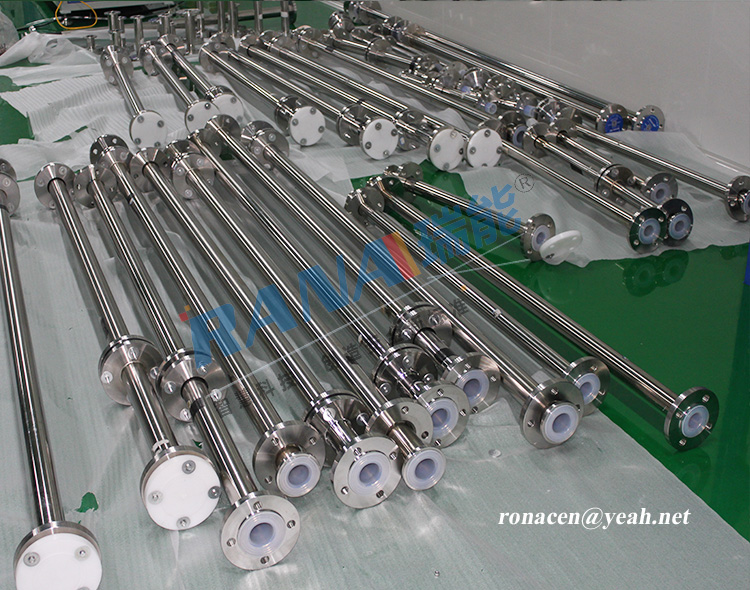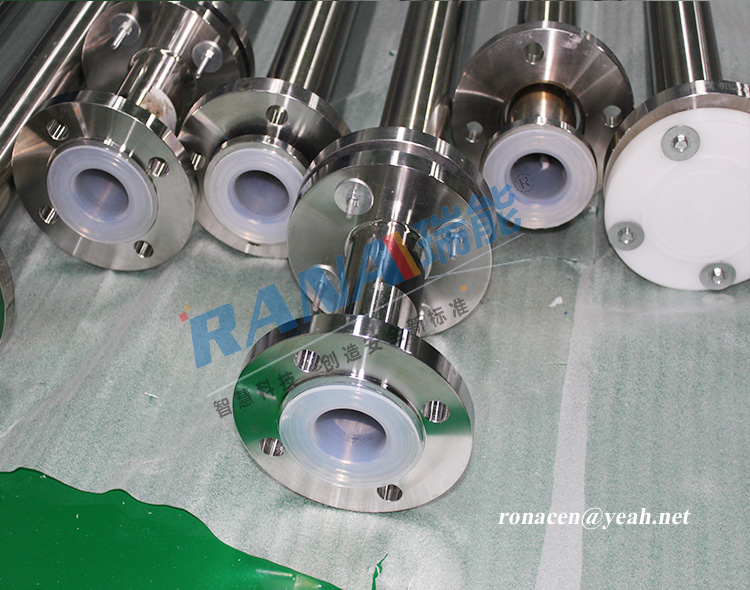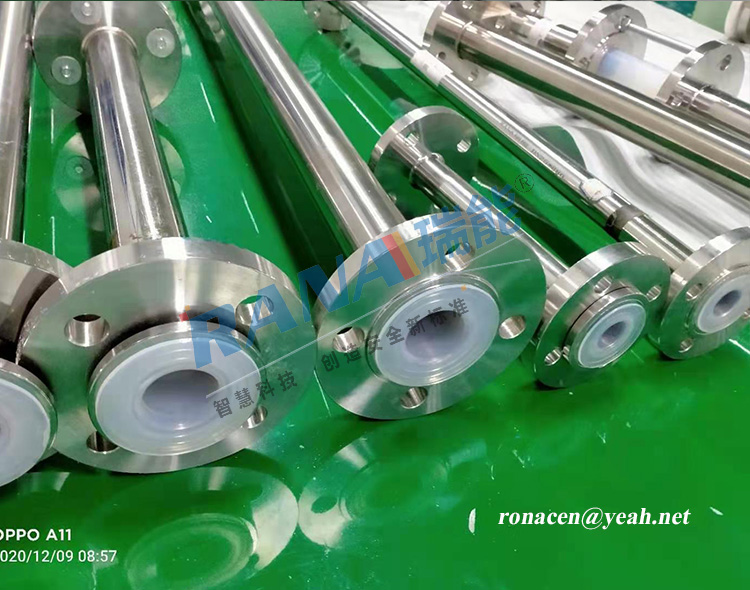On January 13th, the two-day "China Electric Vehicle Hundred People's Association" (hereinafter referred to as "Hundred People's Association") was held at the Diaoyutai in Beijing. As the convener of the "Hundred Talents" low-speed electric vehicle project, Fu Yuwu, chairman of the China Automotive Engineering Society, stressed in an exclusive interview with the 21st Century Business Herald after the meeting: "It is recommended to include low-speed electric vehicles in the classification of motorcycles. Road rights issue; low-speed electric vehicles as test fields in access, strict product access, enterprise access to a wide regulatory system; through the use of small-scale electric vehicles to promote the cost advantage of battery companies, thereby driving China The development of battery companies and battery core technologies."
RANA Fluoropolymer Lined Pipes and Fittings are all manufactured by advanced lining technology, which are widely used in chemical and pharmaceutical industries.
RANA commits to delivering great lined pipes and fittings, we pride ourselves on providng the highest quality of service.
whenever there is a PTFE, PFA lined pipes demand, don't hesitate to contact us, we are ready to provide you a solution.
Lining PTFE,Lining PFA,Lining Teflon,Lined Pipe,Lined Pipeline,Ptfe Lined Pipe,PFA Lined Straight Pipe,Teflon Lined pipe JIANGSU RANA FLUORINE MATERIAL TECHNOLOGY CO., LTD , https://www.ranatank.com
Road rights management can be consistent with motorcycles "21st Century": Today your speech on low-speed electric has been very systematic, what is the core problem of the next low-speed electric car release?
Fu Yuwu: The core is the right of the road, that is, the problem of low-speed electric vehicles on the road, which roads can be on, and which can not, we tend to include low-speed electric vehicles in the classification of motorcycles, such as Beijing prohibiting motorcycles, low-speed electric vehicles Can't go up, but the six rings can go on the road. Motorcycle management is already a very mature system, and small electric vehicles are well managed according to the division of motorcycles. Of course, if you create a new category, you have to set the road rights issue. The policy can remain flexible. In short, it is not a one-size-fits-all policy. It is ok to give a set of specifications, and it needs to be tailored to local conditions.
"21st Century": What are the core views and suggestions of the 100-member conference on low-speed electric vehicles?
Fu Yuwu: The first is that small electric vehicles are market-driven, not government-driven, and they have strong market vitality. The second Europe and the United States is also the first market, and later there is a management system adjustment to adapt to the market. Japan did not have an ultra-small car. It was learning China. It was an act of adapting to the market rather than curbing the market. China has strong market demand, and it is obviously wrong to curb the market.
"21st Century": You have highlighted the low-end cut-in and scale advantage today. Can you talk about it?
Fu Yuwu: The third is the low-end cut, I personally opposed it before. However, this survey found that China has a huge low-end electric vehicle market and can form a huge market scale advantage. At the same time, there are 1,000 lithium-ion battery factories in China, but there are very few high-quality lithium-ion battery factories. Most of them are unqualified, we can use this capacity, if the appropriate subsidies, scale up, the cost can also meet this market. By taking advantage of the scale of small electric vehicles, the battery companies will be promoted to form cost advantages, which will drive the development of Chinese battery companies and battery core technologies. Through this research, we found that this theory is feasible, and it is done in foreign countries.
"21st Century": Regarding the access management of low-speed electric vehicles, what are the recommendations of the 100-member conference?
Fu Yuwu: The product access is strict, the enterprise access is wide, and the pre-management transitions to the matter and afterwards. Of course, this is different from our previous access system for vehicle companies, but why can't we use it to make breakthroughs in car management and do experimental areas? Car access is also a trend. When I went to Japan, Japan did not set safety standards for small electric vehicles. When I proposed that China would consider setting standards in this regard, they expressed their appreciation. Imagine if we do product certification, access, and post-event supervision, this is also a dividend for corporate reform. The last suggestion of the 100-member conference is to select a pilot project with a relatively good foundation and high enthusiasm to introduce low-speed electric vehicles. It is recommended that the pilot area be placed in Shandong.
The regulatory authorities are not opposed to the "21st Century": When will the recommendations of the 100-member conference be implemented?
Fu Yuwu: The government gave a positive response to the proposal of the 100-member association. The Ministry of Public Security did not object to it. It also made some suggestions to set the top speed of low-speed electric vehicles to 70-80 km/h. The Ministry of Communications and the Energy Bureau. I also officially thanked the 100 people for their suggestions on the development of small electric vehicles, but it is time to propose to become a national law and regulation and improve the whole system.
"21st Century": Today's discussion on low-speed electric vehicles in the forum is very intense, and there are representatives who are sharply proposing about the inaction of the ministries. How do you think?
Fu Yuwu: It is true that Academician Yang Yusheng raised a very acute question today. "Let the government put the issue of low-speed electric vehicles on the table to discuss." In fact, things are not so complicated. The government has not expressed any opposition. Of course, the efficiency of the government needs to be further improved. Recently, we have conducted a lot of research on the issue of low-speed electric vehicles, and there are more communication with relevant departments, including the Ministry of Public Security. They have no objections to such sensitive issues, but agree in principle, but how to effectively promote them. Government behavior has become market-oriented or legal to manage the industry, and research is needed. There is no doubt that the government has heard our voice.
"21st Century": Through these two days of meetings, the 100 people will undoubtedly become the vane of the development of the electric vehicle industry. How do you feel?
Fu Yuwu: I have some feelings in these two days. First, the 100-person platform will play a role. Second, the government has heard our voices. I am very happy. The Ministry of Finance and the Energy Bureau have talked about electric vehicles. The understanding is deep. Third, new industries have begun to stimulate industrial vitality. Non-automobile industries such as battery companies, electric vehicle companies, upstream and downstream, consulting institutions, and financial securities have begun to enter the electric vehicle industry. The two major features of the new technological revolution and industrial revolution are Cross-integration and emerging companies have entered in large numbers. Fourth, from the perspective of the whole industry chain, including low-speed short-distance, small pure electric vehicles, infrastructure and automotive intelligence research, this is the problem that hundreds of people will face in the development of electric vehicles. The "National Car" slogan is very appealing and exciting.
I feel very good about the ideas put forward by Professor Yu Zhuoping of Tongji University today. If our traditional car is relatively backward, we have a very good market advantage in electric vehicles. Can we turn such a good market advantage into an industrial advantage and meet the needs of most ordinary people for consumption upgrades. This is a new proposition and it is very encouraging.
A small electric car in the blue sea "21st Century": Recently, Geely and Shandong New Ocean Electric Vehicle set up a joint venture to produce micro-pure electric vehicles. How do you view cooperation? Can this case be a good path for the transformation of low-speed electric vehicle companies?
Fu Yuwu: The cooperation between Geely and the New Ocean is a complement. Geely is going down, facing the broad market prospects and entering the low-speed electric vehicle field. This is a good thing. Geely's technical support ability is definitely stronger than that of enterprises that have never done a car. The joint venture can use the experience advantages of Geely to produce cars to sink, meet the market demand of low-end small electric vehicles, and use the Lanzhou factory to revitalize idle assets. It is also very good, we must deeply understand the "decisive role of the market in resource allocation."
"21st Century": Xu Heyi, chairman of Beiqi, also said yesterday that a production base is being deployed in Shandong. Small electric vehicles seem to represent a trend.
Fu Yuwu: Shandong has the advantages of labor and other parties, small-scale electric vehicles have the market potential of smart entrepreneurs have seen, the future is a commercial blue ocean.
"21st Century": Can it be judged that the spring of small electric vehicles has come?
Fu Yuwu: When the last hundred people were established, I felt that the spring of electric cars was coming. Today, everyone also felt the footsteps and took a solid step. In the past, our understanding of electric vehicles was extremely uneven, and low-speed electric vehicles were not uniform. At this 100-member meeting, we reached a relatively uniform height. There is no absolute objection to low-speed electric vehicles, because we cannot use the concept of a big city to analyze urban and rural problems. This is not the same life form, a differentiated market. It is decided that different models will exist. 

